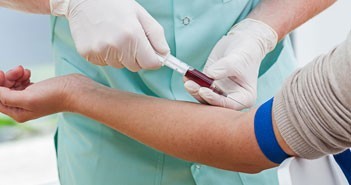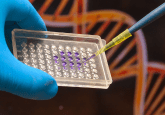Study suggests blood test can accurately detect breast cancer

Researchers at Eventus Diagnostics (FL, USA) and at major cancer centers in the USA, Italy and Israel, assessed blood samples from over 500 women who had positive mammograms followed by breast biopsies. The Octava™ Blue test demonstrated excellent sensitivity and good specificity in identifying women with abnormal mammography results, who actually had breast cancer.
The Octava breast cancer tests are immune system-based blood tests that measure ratios of autoantibodies produced by the body in response to tumor-specific antigens. This allows the presence or absence of cancer to be rapidly detected. Therese Bevers, study co-author, Professor of Clinical Cancer Prevention and Medical Director of the Cancer Prevention Center at the University of Texas MD Anderson Cancer Center, stated, “This study shows that measuring cancer-associated activity of the immune system has the potential to improve the diagnosis of breast cancer. Screening mammography has been an important tool for detecting cancer when it is most treatable, but its accuracy is not optimal.”
The tests were designed for use with screening mammography. Breast biopsies triggered by abnormal mammography results are invasive and painful, yet approximately 80% of them are negative. The Octava Blue test could reduce the number of unnecessary biopsies following false positive results by 50% or more. Bevers commented, “Non-invasive, rapid, affordable blood tests such as Octava Blue that provide additional information to physicians and patients could be valuable in improving the accuracy and cost-effectiveness of breast cancer screening.”
Eventus Diagnostics has also developed the Octava Pink test, which has been shown to detect true negative results with high accuracy, as well as identify at least half of the false negative mammography results. It is estimated that screening mammograms fail to detect 10–30% of breast cancers.
Following validation in clinical studies, the Octava tests currently have pilot distribution programs in Italy, with more planned for other EU countries and Israel. Marvin Rosenberg, President of Eventus Diagnostics US commented, “We are initiating additional clinical studies to support a US regulatory filing and look forward to collaborating with a variety of partners to make this important new diagnostic approach available to women worldwide.”
According to a statement released by the company, the Octava technology is being further refined with the aim of improving its accuracy and applying it to other cancers.
Source: Peer-reviewed publication confirms Octava blood test can accurately detect breast cancer.





